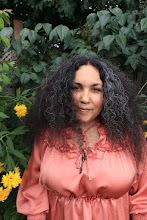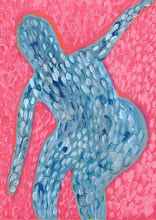By Susana Arrieta
Growing up in Venezuela, most realities had additional veils of secrecy. I was forced to live uncomfortably under the illusory “Good manners, good habits, good family” motto. I knew there would be a getaway, a pivotal moment, a revelation that would soothe the discomfort of being the person I was expected to be versus the liberty to be myself. At the time I could not articulate it—it was a primal feeling of dread. The pivotal moment came quite early, at a formal dinner party, running around, rose bushes in bloom, hand in hand with a green-eyed girl, feeling my heart fluttering, asking my parents if I could please see her again. I never saw her again. My lifelong rebellion had started and with it, the inner struggle of which parts to reveal and which parts to conceal.
Revelations there were: kissing other girls inside closets bursting with linens, clothes, and curiosity—and kissing their brothers too. My best friend Irina and I used to draw ballerinas, hundreds of them, compulsively. Notebooks filled with drawings of female forms. Outside of our dreamland we kept dancing with the boys, dancing with the girls. Holding hands. Blushing. The outside however, started feeling unsafe. The more I grew up the more I realized that surviving without angering the adults meant revealing only what was accepted and expected. Surviving was suppressing the rest, the real. I felt diluted and drained. My spirit felt muzzled, pained, and ever so small—permanently wondering if I could ever be.
The day that I, as a teenager, saw Ronald, a gorgeous human in full drag—strolling through a park in my conservative hometown in the middle of the day—the world grew much larger. They walked wrapped in a sparkly skin-tight dress, black pumps, and purple feathers. With every step they were defying slurs, defying tropical heat, defying everything that I had been taught, and showing me a world I had never seen this close. My friend Mara caught me staring and giggled “You are in love!” Of course I was, I knew I had found my people. I was contemplating freedom in its most exuberant and lively form to date.
Mara took me clubbing as soon as we turned 18. It was under the low lights and smoke-soaked walls of La Unión, our hometown’s gay club—where I discovered myself, instinctively jumping on top of a table to dance to disco, remixed. I felt strong and brave and free for the first time in my life. At that moment, an older man, a perfect stranger, wearing brown bell-bottoms and a big gold medallion that dangled in front of his waxed chest saw me dancing and clapped loudly, he yelled so that I could hear, “You, my dear, are a goddess!” I had unfolded before his very eyes. He was a witness to my blossoming. I still carry the euphoria of that instant in my heart.
We went to the club on and off, and the dance circle kept going. Mara and I grew distant but the community continued. I felt blessed whenever others like me seemed to find me, so easily, so sincerely. There were no big declarations, there were no elaborate speeches, there was however, a clear sense of the sacred, that I am able to see now that those merry days are decades in the past. There must have been a glow about me. My light has certainly dimmed since. Political unrest, violence, poverty, the lack of rights and dignity for gender diverse and queer Venezuelans, and what 26 years later the rest of the world is finally acknowledging as a dictatorship, drove millions of us away from home to explore other latitudes and longitudes. The exodus continues to this very day.
My discontent resumed in exile. I became a stranger to myself once my loved ones dispersed. Ronald works in Spain, in the fashion world. Mara has two children and lives in a small town in the U.S. Some of those who stayed home seem disgusted by our past, whereas others keep the circle safe for the younger ones. Irina moved to Italy and we no longer have a common language—save for love, which is still there.
Far away from the queers I trust with my life, I haven’t ceased feeling muzzled, pained, and ever so small—distant from my own, as if that gravitational pull that I developed and helped me survive in a society that hates our kin was suddenly turned off by the weight of pain, and the soul crushing stress that comes with having to live on survival mode every waking hour.
I have made myself so silent. I have made myself insignificant. I have made myself adapt in ways that hurt me. This is a match. This is a spark. These words are my fire. This is a meditation and a time machine that is begging me to be again, to unfold and bloom like that queer teenager dressed in black who jumped on top of a round wooden table, cigarette in hand as Donna Summer sang I feel love, I feel love, I feel love, I feel love, I feel love. I feel love. I feel love.
Susana Arrieta is a writer and visual artist from Venezuela living in Toronto, Canada.
The artwork above, titled “Seeking,” is by Susana.


